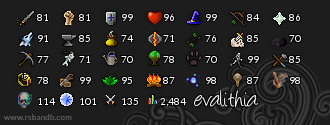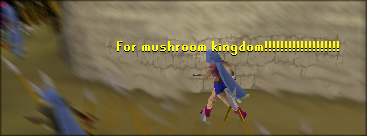Trekkie, you are getting a bit on the geeky side today....

trekkie wrote:
^ that is actuall pretty bad.
Are vegetarian diets healthy?
Vegetarian diets can be very healthy, but eating a balanced diet when you are vegetarian usually requires a little extra attention. Because vegetarians eliminate certain foods from their diets, they often need to work to add foods into their diet that will provide the nutrients found in meat products. By eating a variety of foods including fruits, vegetables, and whole grains, you can get the vitamins and nutrients you need from non-meat sources. By eating legumes, soy foods, nuts, and eggs, you can get the protein that you need to grow. Other nutrients to be concerned with are the minerals iron and calcium and the vitamins D and B12, which are especially important for vegans.
*Carbohydrates provide energy and vitamins for your brain and muscles. Grain products, especially whole grains, fruits, and certain vegetables are very important because they provide the carbohydrate, fiber, and many vitamins that your body needs.
*Fat is needed by your body to stay healthy. Fat provides essential fatty acids and helps your body absorb certain vitamins. Vegetarians need to include sources of fat such as nuts, oils, or avocado.
*Protein is needed for your muscles to grow. Vegetarians have to be careful not to just cut meat out of their diet, but to replace the meat with high-protein vegetarian foods. Nuts, peanut butter, soy foods, and legumes such as beans, peas, and lentils all provide protein. Protein is also found in dairy foods like milk, yogurt, and cheese for vegetarians who eat these foods.
*Zinc is important for growth and your immune system. Zinc is found in whole grains, fortified breakfast cereals, dairy products, soy foods, and legumes.
*Iron is important for your blood and is found in beans, seeds, soy foods, fortified breakfast cereals, and dark green leafy vegetables, like spinach. Vitamin C helps your body to absorb iron so eating foods rich in vitamin C, like citrus fruits and certain vegetables (like tomatoes) is important, as well.
*Calcium is important to build strong bones for later in life. Calcium is found in dairy products like milk, yogurt, and cheese and dark green leafy vegetables like kale and spinach. Some foods are not naturally high in calcium but have calcium added to them; these foods are called calcium-fortified. Some soy products, orange juices, cereals, and cereal bars are calcium fortified. Look at the food label to find out which brands are highest in calcium.
*Vitamin D is important for strong bones and is particularly important for people who live in colder climates because you need the sun to make it. During the winter the sun is not as strong and you are not able to make the Vitamin D you need, so it is especially important to make sure you get Vitamin D from the foods you eat, such as fortified dairy products and soy milk.
*Vitamin B12 is the only nutrient that needs to be added to a vegan-vegetarian diet. Nutritional yeast flakes, fortified soy milk and cereals contain vitamin B12.





















